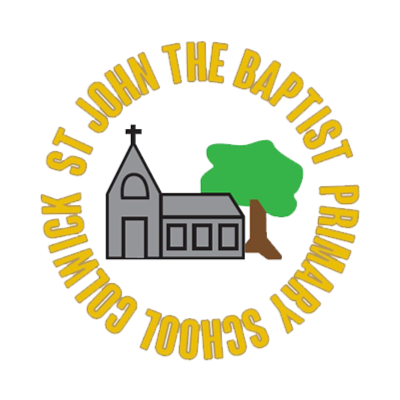British Values
Promoting British Values at St John The Baptist Church of England Primary School
The DfE have recently reinforced the need “to create and enforce a clear and rigorous expectation on all schools to promote the fundamental British values of democracy, the rule of law, individual liberty and mutual respect and tolerance of those with different faiths and beliefs.”
The government set out its definition of British values in the 2011 Prevent Strategy, and these values have been reiterated by the Prime Minister in 2014. At St John The Baptist Primary school these values are reinforced regularly through our Church of England value teaching and in the following ways.
Democracy:
Democracy is firmly embedded within the life of the school. Pupils have the opportunity to have their voices heard through School Council, Eco Council, class People Skills lesson, Great Project, DARE, and pupil questionnaires. Children also have the opportunity to see democracy in practice, voting for the House Captain and their School Council representatives on an annual basis. We openly encourage children to share their views respectfully about different matters, whether this is during a discussion in curriculum time or more informally, for example when having circle time. We also benefit from regular visits from our local MP and councillors.
The Rule of Law:
The importance of laws, whether they be those that govern the class, the school, or the country, are consistently reinforced, both in the classroom and during whole school worship. Pupils are taught the value and reasons behind laws: that they govern and protect us; the responsibilities that this involves and the consequences when laws are broken. Children have to abide by rules on a daily basis, for example our school rules (supported by the Home – School Agreement) or playing by the rules when representing their house or the school at a sporting event. The ‘House Points’ reward system and ‘Celebration Worship’ positively highlights those who are adhering to the school’s rules and values, whilst regular reminders are given in the classroom, during worship or at the beginning of school dinners if there are issues that need to brought to the children’s attention. Consequences, in line with the school’s Behaviour Policy, remind the children that breaking the rules may impact on themselves and others. We also benefit from regular visit from our local Police Officer and PCSOs.
Individual Liberty:
Within school, pupils are actively encouraged to make choices, knowing that they are in a safe and supportive environment. As a school, we educate and provide boundaries for young pupils to make choices safely, through the provision of a safe environment and an empowering education. Pupils are encouraged to know, understand and exercise their rights and personal freedoms and are advised how to exercise these safely, for example through E-Safety and People Skills sessions. Through choice of challenge, participation in our numerous extra-curricular clubs and opportunities, pupils are given the freedom to make choices.
Mutual Respect:
Respect is a valve that underpins our daily practice in school. This is consistently and frequently discussed with the children through whole school worship, circle time and School Council meetings. Our behavior philosophy is based around ensuring that all children care for and respect one another and that they can value everyone as individuals.
Tolerance of those of Different Faiths and Beliefs:
This is achieved through enhancing pupils understanding of their place in a culturally diverse society and by giving them opportunities to experience such diversity. As a voluntary aided Church of England school, we welcome children of all faiths. During whole school worship we explore Christian values, for example respect, hope and service. These apply equally to all faiths and beliefs . Other faiths, beliefs and festivals are explored in R.E lessons - all major faiths are studied over the different key stages in accordance with the School’s Equality Policy. Classes are actively encouraged to visit other faith’s places of worship, and where this is not possible, guest speakers are invited in to discuss what their faith means to them. Parents are also encouraged to participate in sharing aspects of their culture . A number of charities are supported by the school, both locally and globally, and these are chosen regardless of faith or belief. Any incident of prejudice – which could be based on faith or belief – would be treated with utmost urgency in accordance with the school’s Anti-Bullying Policy and Complaints Policy.
